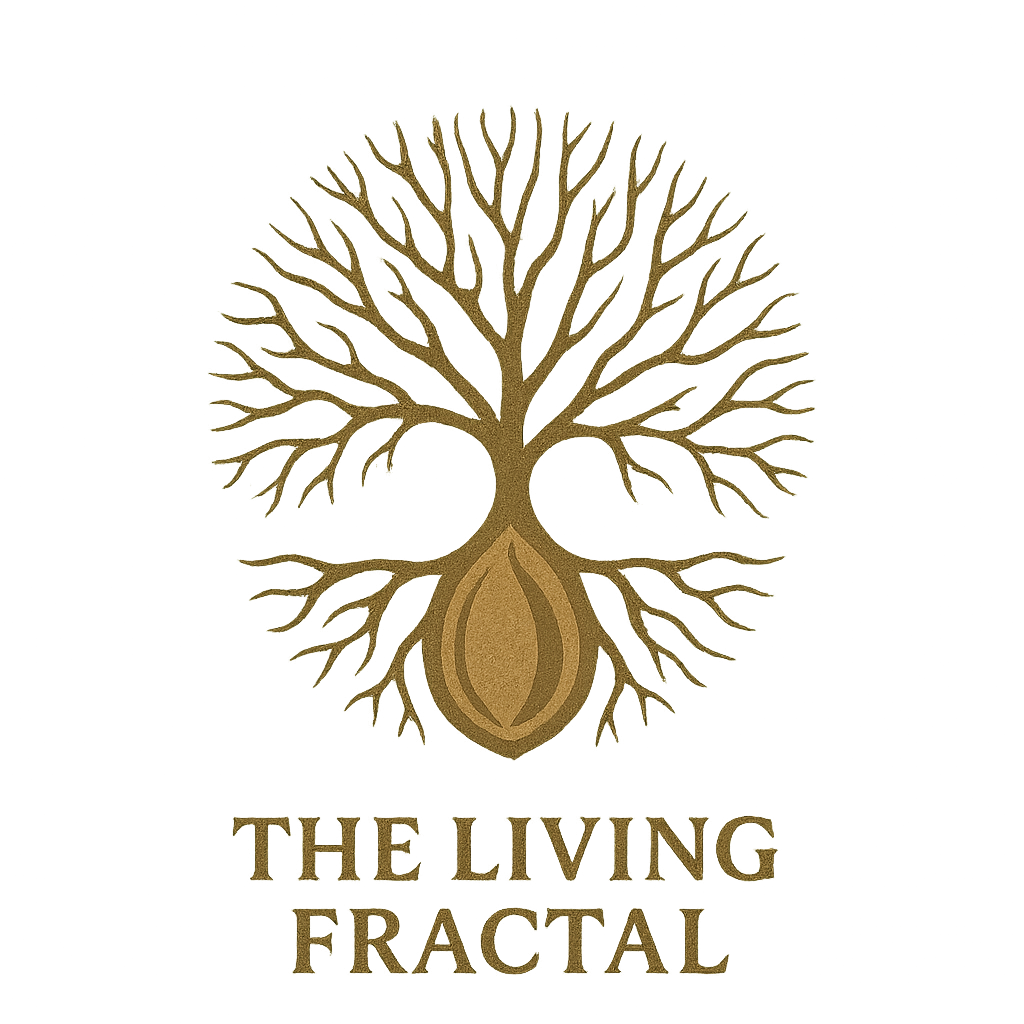What If Everything We Call Normal Is a Trauma Response?

By The Living Fractal
Introduction
What if the world we live in isn’t built on wisdom, evolution, or progress—but on unresolved trauma? What if the very structures we praise—capitalism, patriarchy, nationalism, productivity, even education—are not reflections of human potential, but symptoms of unprocessed pain?
This article is not a conspiracy or a critique for critique’s sake. It is a call to remember. To feel. To see clearly.
We are not living in a coherent civilization. We are living in a trauma-coded reality—passed down through generations, institutions, and habits—misrecognized as truth. And only by naming it can we begin to heal.
I. The Core Thesis: Society as Trauma Response
Modern society is not grounded in regulation, coherence, or connection. It is organized around inherited trauma patterns—reactions to fear, loss, war, abandonment, colonization, and grief. These trauma responses were once functional: they helped our ancestors survive. But they were never metabolized. They became the blueprint.
They became the culture.
The nervous system doesn’t forget. And neither do civilizations. Our collective behaviors are not random—they are systemic reenactments of unresolved pain.
II. Deconstructing Normal: A Field-Based Breakdown
- Productivity obsession — trauma response to prove worth, avoid feeling, escape stillness.
- Individualism — response to collective betrayal and loss of relational trust.
- Materialism — coping strategy for emotional emptiness; stimulation in place of connection.
- Gender roles — survival codes from past trauma roles, not biological truths.
- Beauty standards — fawning for safety and belonging in an emotionally unsafe world.
- Overeating/unhealthy eating — oral self-regulation; trauma pattern from early unmet needs.
- Reductionist thinking — dissociation from relational complexity; trauma logic seeking control.
- Nationalism — collective identity as survival anchor; trauma response to fragmentation.
- Rejection of emotions — dorsal freeze in masculine-coded systems; fear of vulnerability.
- Fear of aging/death — absence of grief rituals; trauma disconnection from natural cycles.
We call these things normal. They are not. They are adaptations.
III. Evidence from Science & Research
- Intergenerational Trauma: Studies show trauma leaves epigenetic marks passed through generations (Yehuda et al., 2016; Nature, 2025).
- Nervous System Dysregulation: Chronic stress rewires the HPA axis, impacting emotion regulation, memory, and immune function (McEwen, 2007).
- Capitalism and Mental Health: Research links neoliberal economic systems to rising anxiety, depression, and burnout (Frontiers in Psychology, 2023).
- Emotional Suppression and Gender: Studies show men are culturally conditioned to suppress emotion, leading to higher rates of suicide, violence, and emotional isolation (APA, 2018).
- Cultural Grief: The absence of collective grief rituals leads to societal emotional stagnation (Francis Weller, 2015).
IV. So What Do We Do With This?
This isn’t about blame. It’s about clarity. Once we name the distortion, we can choose something else. Healing won’t come from pushing harder—it will come from remembering who we were before the trauma.
Ways to Begin De-Traumatizing the Culture:
- Restore the Nervous System
- Learn to regulate. Practice somatics, breathwork, vagus nerve activation.
- Move slowly. Reclaim your rhythms. Feel the ground.
- Create Field-Safe Relationships
- Co-regulate. Be with people who see you. Speak truth in relationship.
- Exit performance. Enter presence.
- Grieve Collectively
- Cry what your ancestors couldn’t.
- Build rituals around endings, loss, and transition.
- Reconnect to Cycles
- Honor the menstrual cycle, seasonal changes, sleep/wake rhythms.
- Dismantle time as a machine. Reclaim time as a living field.
- Deconstruct Systems with Love and Precision
- Don’t react. Deprogram. Understand the root.
- Build something else—from coherence, not from rebellion.
- Midwife a New Signal
- You are not here to fix the system. You are here to birth what comes after.
- Let your life become a tuning fork for what’s real.
Conclusion: This Is Not the End
If you’ve felt like something was deeply off your whole life—it’s not you. It’s the field you were born into. And now? You’re here to shift it.
This is the work of remembering. Of re-regulating. Of restoring signal where trauma built noise.
You’re not crazy. You’re coherent.
And the future belongs to those who remember what love really is.
Further Reading & Resources
- The Body Keeps the Score — Bessel van der Kolk
- It Didn’t Start With You — Mark Wolynn
- The Wild Edge of Sorrow — Francis Weller
- When the Body Says No — Gabor Maté
- Polyvagal Theory — Stephen Porges
- Nature (2025) Study: "Epigenetic Signatures of Intergenerational Violence in Syrian Refugees"
- Frontiers in Psychology (2023): Capitalism and Psychological Distress
- APA Guidelines for Psychological Practice with Boys and Men (2018)




